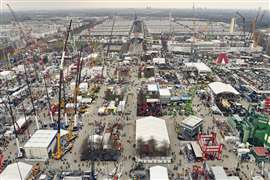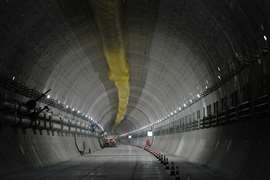Controversy
25 April 2008
Lao is one of the poorest countries in the world with a GDP per capita of less than US$ 2000. Most of the 6.4 million people in this communist state are subsistence farmers, and 70% of the population are thought to live below the absolute poverty line, surviving on US$ 2 per day or less.
Against this backdrop, NTPC is of course keen to stress the benefits of NT2 to the Laotian people. Although most of the electricity generated will be exported to Lao's rich neighbour Thailand, 6.5% of the power generated will be fed into Lao's grid.
In addition to this, NTPC says royalties, taxes and dividends over the 25 year concession period will provide a total income of US$ 2 billion for the country, and when the concession period comes to an end, NT2 will be Lao's single biggest piece of infrastructure. The construction phase of the scheme is also expected to provide direct employment for up to 4000 Lao people.
However, environmental pressure groups such as the WWF have criticised NT2 for its negative human and environmental impacts, and question whether the scheme is in the best interests of Lao's development needs. Some 6200 people are being relocated to allow the scheme to go ahead, mostly in the vicinity of the Nakai Dam. NTPC does not dispute this. On the contrary, it says these peoples' lives will be improved as a result of the relocation, with their new settlements having electricity, schools, clinics and fresh water for drinking and irrigation.
In addition to these, the WWF says between 50000 and 130000 people rely on the Xe Bang Fai watershed for their livelihoods, and these could be threatened by the increased flow into the river from NT2. NTPC has set aside US$ 16 million to compensate villagers on the Xe Bang Fai for the loss of land and impact on fisheries caused by the project.
There are also concerns over how the new 450 km2 reservoir will affect the jungle environment. Some groups claim its creation will destroy the habit of several endangered species, including tigers, leopards and elephants.
But perhaps most significantly, the WWF has raised serious questions as to whether NT2 is needed at all. The need for NT2 is based on projected electricity consumption in Thailand, and the WWF says there is no clear evidence this electricity will be needed over the next decade, even with strong economic growth in Thailand.






